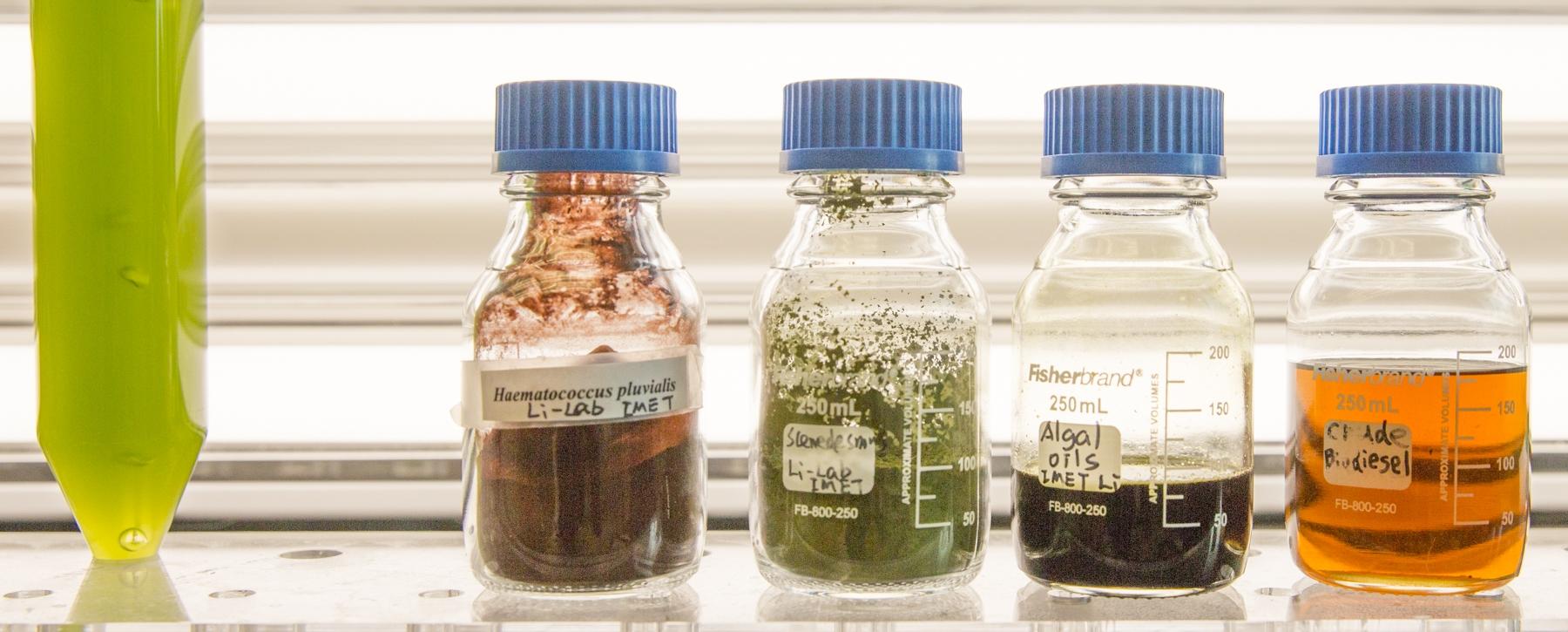
Energy, Water & the Environment
|
|
|
|
|
|
|
Restoring & Protecting Ecosystems
IMET researchers develop novel technologies for sustainable, in-situ treatment of organic pollutants such as PCBs and PAHs in sediments and soils. IMET researchers are also developing mitigation strategies and approaches to lessen the impact of harmful algae and nutrient pollution.
Creating Sustainable Energy & Other Resources
In order to develop innovative bioenergy processes, IMET scientists investigate microalgae and cyanobacteria as producers of lipids and hydrocarbons at molecular and systems levels. To improve the efficiency of bioenergy production, IMET researchers study how microbes regulate methane production from biomass and the conversion of organic waste to biogas. Throughout this research, IMET scientists also integrate the complex symbioses among bacteria, microalgae, and animals, which can have important impacts on the process. IMET researchers also explore other bioproducts. In particular, better understanding of the adaptive mechanisms of microbes in extreme environments is opening up great potential for the development of high temperature enzymes for manufacturing and bioenergy production.
Understanding the Natural World & Climate
IMET researchers explore the roles of microbes in biogeochemical cycles and microbial diversity through genomic and metagenomic studies of marine and estuarine microbes. To better understand the processes driving climate change, IMET scientists model microbial metabolic fluxes. Research on extremophiles at IMET seeks to understand the origin, evolution, distribution, and future of life in the Universe, specifically the potential for life to adapt to different environments, and the implications for life elsewhere.
Researchers working in this area:
 Dr. Feng Chen UMCES-IMET |
 Dr. Shiladitya DasSarma UMB-IMET |
 Dr. Russell Hill UMCES-IMET |
 Dr. Yantao Li UMCES-IMET |
 Dr. Allen Place UMCES-IMET |
 Dr. Harold Schreier UMBC-IMET |
 Dr. Kevin Sowers UMBC-IMET |